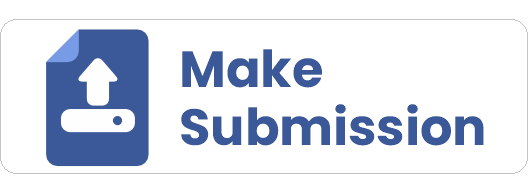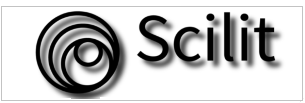Edukasi dan Pendampingan Pengelolaan Sampah Anorganik Berprinsip Zero Waste System di Desa Bagik Payung Selatan Kecamatan Suralaga
DOI:
https://doi.org/10.29408/jt.v2i1.26422Keywords:
Bagik Payung Selatan Village, Ecobrick, Waste Management, Zero Waste SystemAbstract
Bagik Payung Selatan Village is one of the villages in Suralaga District, East Lombok Regency with a dense population of over 1.2 million people spread across 10 hamlets. The high population in Bagik Payung Selatan Village causes quite high amounts of waste production which can be seen from the large amount of rubbish piled up on the side of the road and environmental cleanliness still neglected. The community in Bagik Payung Selatan Village has a low level of awareness and knowledge regarding inorganic waste management. Most of the inorganic waste is plastic waste produced daily from household waste. This community service activity aims to provide education on inorganic waste management using ecobrick techniques with zero waste system principles in Bagik Payung Selatan Village so that the local community can manage inorganic waste well. The method of educating the community is carried out by providing outreach and training in skills to make handicraft products from inorganic waste which has previously been prepared using the ecobrick technique. The results of this community service activity include public knowledge and awareness regarding ecobrick techniques, the zero waste system principles, and community creativity in managing inorganic waste increased. The community is very enthusiastic about turning household waste into multiple useful handcraft products that can be reused and sold since they have high economic value to help the local community's economy.
References
Ahdiat, A. (2023). Rumah Tangga, Sumber Sampah Terbesar Indonesia. Databooks, pp. 17–18.
Anonim. (2018). Badan Pusat Statistik Lombok Timur, Retrivied from https://lomboktimurkab.bps.go.id/indicator/12/155/1/jumlah-penduduk-kecamatan-suralaga-dirinci-menurut-desa.html.
Anonim. (2024). Zero Waste Adalah: Pengertian, Prinsip, Manfaat, dan Strateginya, Liberty Society, Retrivied from Zero Waste Adalah: Pengertian, Prinsip, Manfaat, dan Strateginya – Liberty Society (liberty-society.com)
Awasthi, A.K., Cheela, V.R.S., D'Adamo, I., Iacovidou, E., Islam, M.R., Jhonson, M., Miller, T.R., Parajuly, K., Parchomenko, A., Radhakrishan, L., Zhao, M., Zhang, C., & Li, J. (2021). Zero waste approach towards a sustainable waste management. Resources, Environment and Sustainability, 3(January), p. 100014. Available at: https://doi.org/10.1016/j.resenv.2021.100014.
Defitri, M. (2022). Melihat Metode Pengolahan Sampah di 4 Negara Maju, Bisa Dicontoh Nih!, Waste4Change, Retrivied from https://waste4change.com/blog/melihat-pengolahan-sampah-di-4-negara-maju-bisa-dicontoh-nih/.
Ernyasih, E., Fajrini, F., Elyasa, L.B., & Alfiana, Q., (2020). Edukasi Dan Pendampingan Pengolahan Sampah Berbasis 3R (Reduce, Reuse, Recycle) Pada Santri Di Pesantren Sabilunnajat, Ciamis. AS-SYIFA : Jurnal Pengabdian dan Pemberdayaan Kesehatan Masyarakat, 1(1), p. 16. Available at: https://doi.org/10.24853/assyifa.1.1.16-22.
Rohana, E., Wulandari, F., Prabhata, W.R., Ekawati, N., Anam, K., Rukmi, M.G.I., Sasikirana, W. (2024). Pelatihan Pembuatan Ecobrick sebagai Solusi Penanganan Sampah Plastik di SDN Pandean, Kecamatan Pandean, Magelang, Jurnal Pengabdian Nusantara, 8(2), 2024, 363-368. Available at https://doi.org/10.29407/ja.v8i2.20749.
Putra, A. M., Haerudin, H., Darmawan, M. I., Widiyanti, B. L., Hartini, H., & Susanti, D. R. (2023). Pendampingan Kelompok Program Kampung Iklim (Proklim) Temayang di Kecamatan Montong Gading Kabupaten Lombok Timur. Jurnal Teknologi Informasi Untuk Masyarakat, 1(2), 66–76.
Putra, Y. K., Fathurrahman, F., Nurhidayati, N., Mahpuz, M., Sadali, M., & Wasil, M. (2023). Pelatihan Desain Grafis Guna Meningkatkan Kreatifitas Dalam Berwirausaha Bagi Pelaku UMKM Di Kecamatan Sembalun. Jurnal Teknologi Informasi Untuk Masyarakat, 1(1), 1–6.
Setyono, A.E. & Sinaga, N. (2021). Zero Waste Indonesia: Peluang, Tantangan Dan Optimalisasi Waste To Energy. Eksergi, 17(2), p. 116. Available at: https://doi.org/10.32497/eksergi.v17i2.2619.
Undang-Undang Nomor 18 Tahun 2008 tentang Pengelolaan Sampah. (2008). Jakarta, Retrived from https://peraturan.bpk.go.id/Details/39067/uu-no-18-tahun-2008.
Widyasari, R., Zulfitria, & Fakhirah, S. (2021). Pemanfaatan Sampah Plastik dengan Metode Ecobrick sebagai Upaya Mengurangi Limbah Plastik, Seminar Nasional Pengabdian Masyarakat LPPM UMJ. Tersedia di (Online). http://jurnal.umj.ac.id/index.php/semnaskat
Downloads
Published
How to Cite
Issue
Section
Categories
License
Copyright (c) 2024 Yuyun Febriani, Muhlisun Azim, Arief Rafsanjani, Leny Ramadhan, Baiq Risma Fatmayanti

This work is licensed under a Creative Commons Attribution 4.0 International License.
Copyright & License
Copyright
Authors published in this journal agree to the following terms:
- The copyright of each article is retained by the author (s) without restrictions
- The journal allows the author(s) to retain publishing rights without restrictions
- The author grants the journal the first publication rights with the work simultaneously licensed under the Creative Commons Attribution License, allowing others to share the work with an acknowledgment of authorship and the initial publication in this journal.
- Authors may enter into separate additional contractual agreements for the non-exclusive distribution of published journal versions of the work (for example, posting them to institutional repositories or publishing them in a book), with acknowledgment of their initial publication in this journal
- Authors are permitted and encouraged to post their work online (For example in the Institutional Repository or on their website) before and during the submission process, as this can lead to productive exchanges, as well as earlier and larger citations of published work
- Articles and all related material published are distributed under a Creative Commons Attribution- 4.0 International Public License (CC - BY 4.0).
License
Teknokrat: Teknologi Informasi untuk Masyarakat is licensed under a Creative Commons Attribution- 4.0 International Public License (CC - BY 4.0).
![]()
You are free to :
Share — copy and redistribute the material in any medium or format
Adapt — remix, transform, and build upon the material for any purpose, even commercially
Under the following terms :
Attribution — You must give appropriate credit, provide a link to the license, and indicate if changes were made. You may do so in any reasonable manner, but not in any way that suggests the licensor endorses you or your use.
No additional restrictions — You may not apply legal terms or technological measures that legally restrict others from doing anything the license permits.














